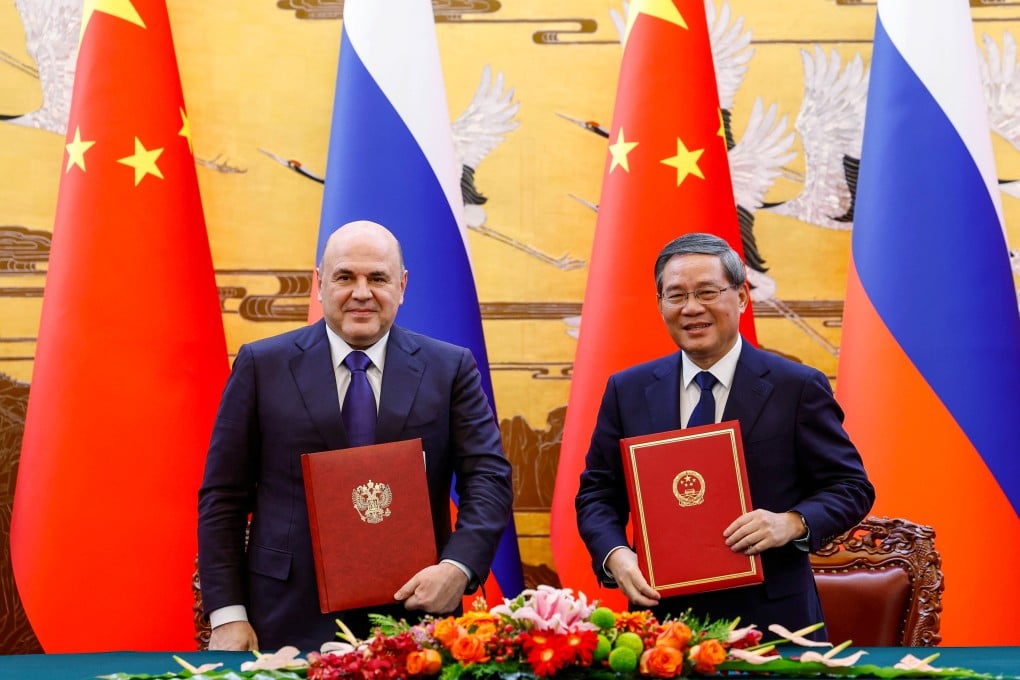Advertisement
China and Russia pledge to defend each other’s core interests, ‘jointly face challenges’ as Moscow faces new sanctions
- In communique issued after meeting led by Chinese Premier Li Qiang, Moscow reaffirms support for ‘one China’ and opposes Taiwan independence
- The two sides vow to ‘closely coordinate’ under multilateral frameworks including Brics, G20, SCO and Apec
Reading Time:2 minutes
Why you can trust SCMP
6

China and Russia pledged to defend each other’s interests and “jointly face challenges” amid geopolitical changes, according to a joint communique issued following meetings between their heads of government.
Beijing and Moscow reaffirmed that their bilateral ties would not be affected by any third-party interference and pledged to strengthen coordination within multilateral frameworks after an annual meeting led by Chinese Premier Li Qiang and his Russian counterpart Mikhail Mishustin concluded in Beijing on Wednesday.
“Consolidating and deepening China-Russia relations in the new era is a strategic choice made by both sides based on their respective national conditions. It is in line with the fundamental interests of the two countries and their peoples … It is not aimed at a third party, and is not subject to or swayed by external influence,” the joint communique said.
The communique stated that Russia reaffirmed its support for “one China” and “opposed any form of independence of Taiwan”, while China said it supported Russia’s territorial integrity and opposed interference in Russia’s internal affairs by external forces.
Advertisement
The communique said China and Russia would continue to jointly face challenges and “firmly support each other in safeguarding their respective core interests”.
Mishustin was in China for a two-day visit in a bid to secure economic deals with the country as Russia has become internationally isolated since its invasion of Ukraine, where war has raged on for almost two years with no end in sight.
Advertisement
He also met Chinese President Xi Jinping on Wednesday, who said he would advance political and economic ties with Moscow.
Advertisement
Select Voice
Choose your listening speed
Get through articles 2x faster
1.25x
250 WPM
Slow
Average
Fast
1.25x